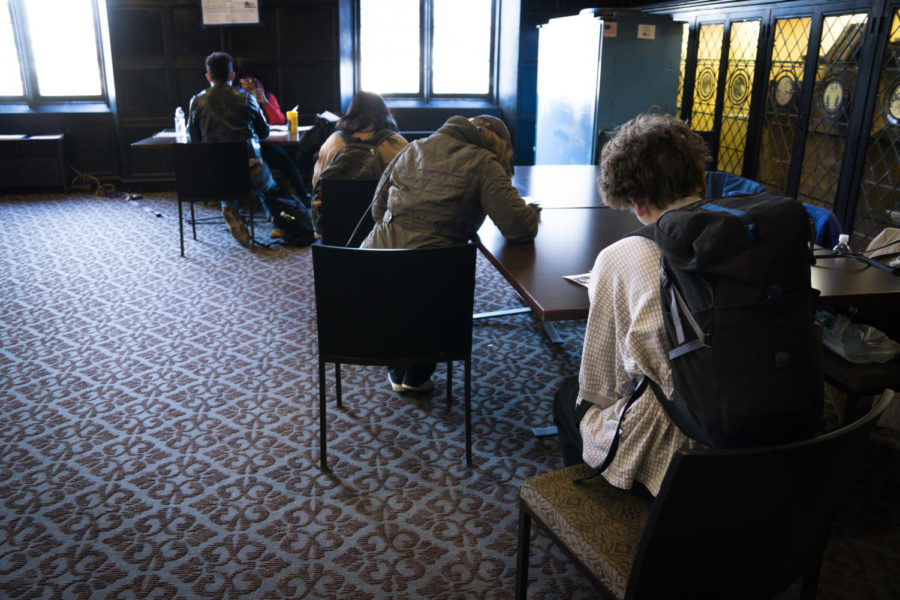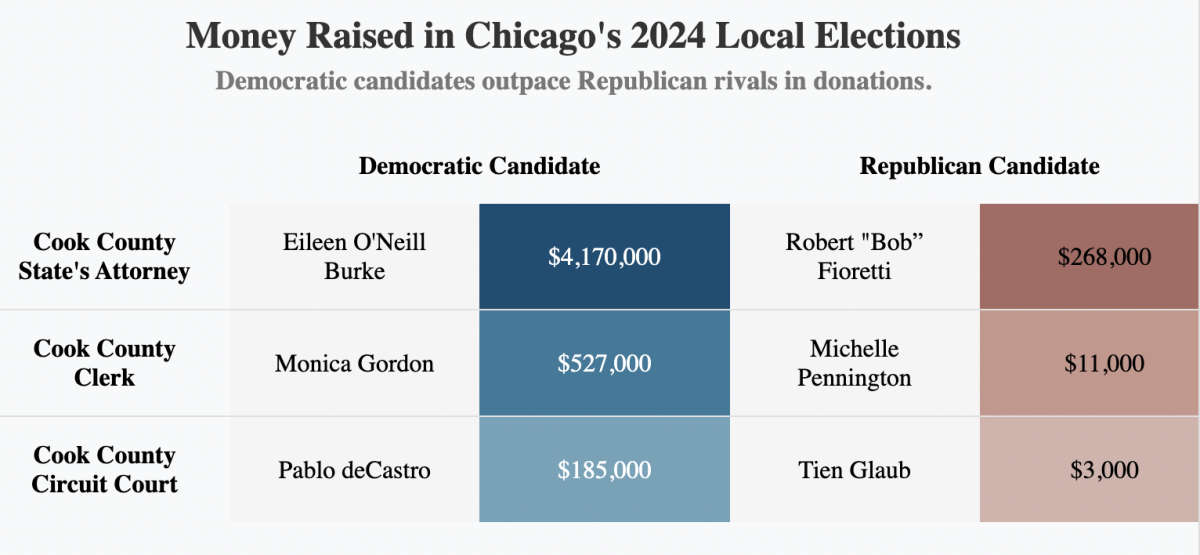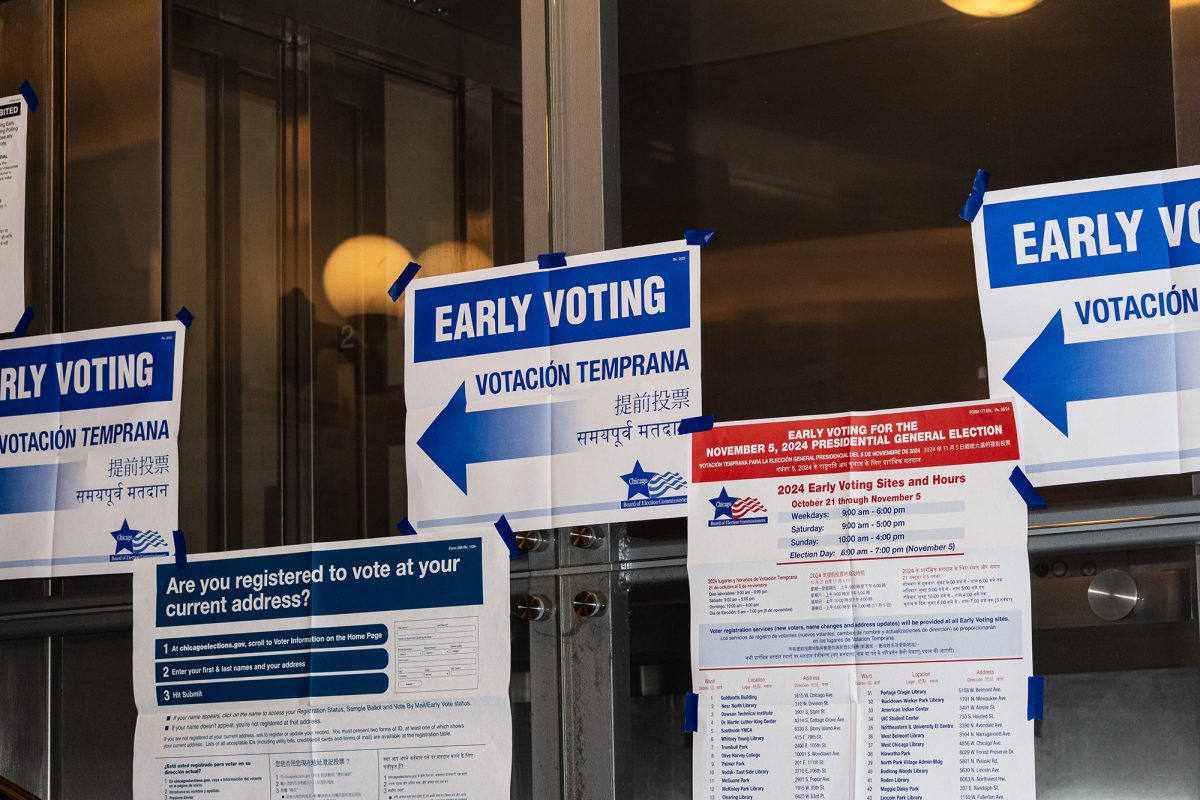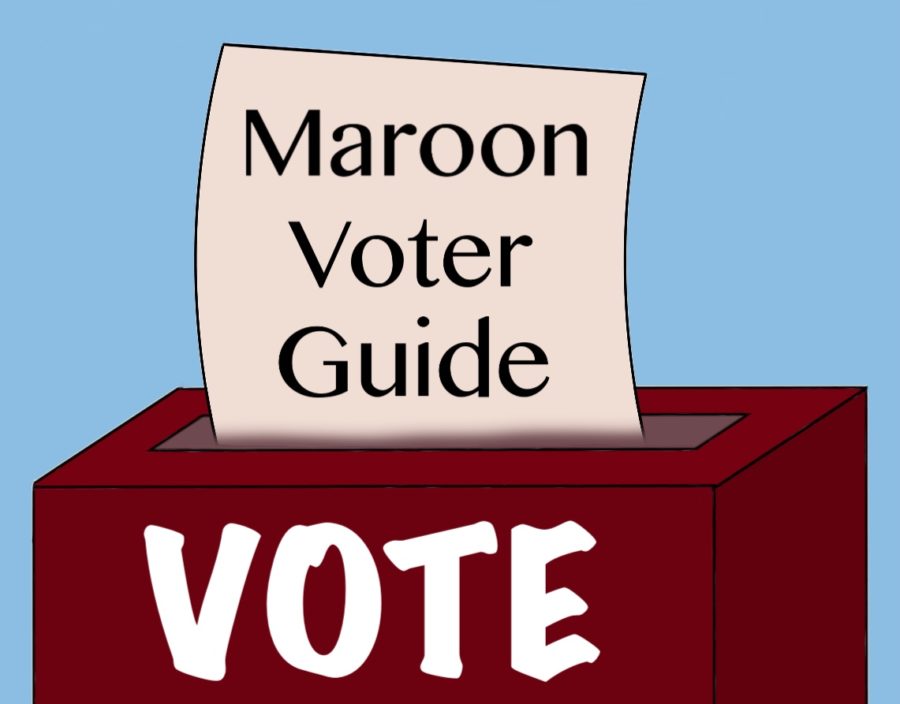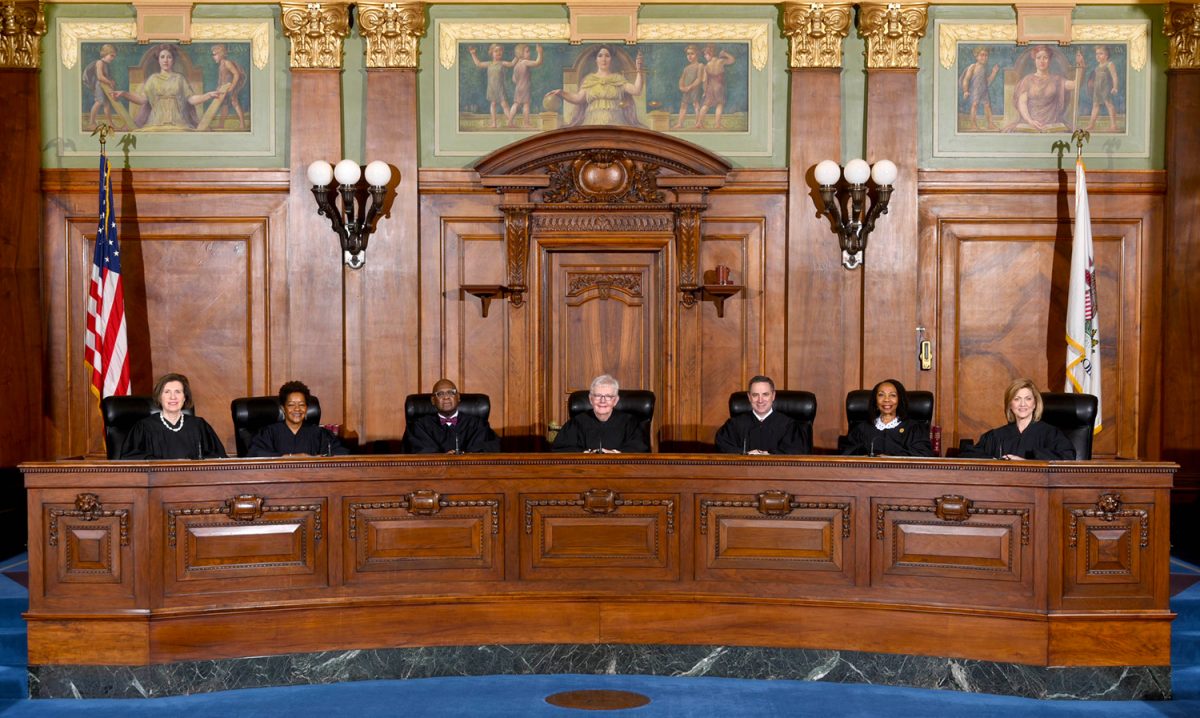With Election Day fast approaching, voting is at the forefront of many students’ minds, and UChicago, like any college campus, is host to a broad spectrum of political views and affiliations. The Maroon sat down with campus Democrats and Republicans to learn which issues are most important to voters in the College and how students are staying politically active this election season.
Many Democrats on campus are rallying around issues including reproductive rights, climate change, and gun control, while Republicans are focused on economic concerns and matters of national security. Despite their differing values, students from both parties have been vocal and deeply engaged in the political process.
Second-year UChicago Democrats member Soph Franklin expressed optimism about the level of Democratic engagement on campus. “I feel really happy that a lot of my peers are also politically engaged and are excited to get out there and vote,” they said.
Likewise, second-year Robbie Hlatki, communications director for UChicago Democrats, noted that the RSO has been very active this quarter. He pointed to spikes in attendance at weekly meetings for the RSO and on its canvassing trips for the Harris campaign as indicative of a certain level of excitement surrounding this particular election.
“I think we see a lot more energy,” Hlatki said of this election cycle as compared to past ones. “This… is a choice between Kamala Harris or Donald Trump…. Not everyone agrees with every single policy that is supported by Harris, but I think there’s a consensus among UChicago Democrats, and I think among my estimates, the UChicago body, that she is the better pick in this election. She’s the one fighting for us.”
For Hlatki, the most important voter issues this election are the same ones that the Harris campaign promises to champion. “I’m worried about what Donald Trump’s going to do,” he said. “I just believe that Kamala is going to fight for my future because she’s going to push for stricter gun laws that are basic common sense, like background checks, red flag laws, assault weapons ban…. Kamala Harris is going to take us forward in so many more ways.”
Franklin echoed these concerns but cited the Supreme Court in particular as their main voting issue.
“It’s really important to have someone who I trust, who will pick justices who will protect my rights and my values… [because they’ll] be serving on the court for most of my adult life,” Franklin said, emphasizing the long-term impacts of judicial appointments on issues like reproductive rights.
On the other side of the aisle, fourth-year Republican Carolyn Russell named the economy as her top priority in the upcoming election and a key reason for her choice to vote for Donald Trump.
“The economy—with [the Biden-Harris] administration, we’ve seen prices go up,” Russell said. She added that immigration was important to her too. “I’m all for immigration—this country was built on immigration—[but] I think that to have people we don’t know here… [is] a problem, and I think that impacts the economy a lot, too, because we’re paying a lot for the illegal immigrants to be here.”
Second-year Republican Akshay Kirthi expressed a similar sentiment, noting his dissatisfaction with the Biden-Harris administration’s approach and criticizing America’s tendency to act as a “global policeman” in major international conflicts.
“I believe that America should act in its own interests,” Kirthi said. “I think the U.S. should disengage from Ukraine, disengage from Israel, disengage from other parts of the world, [but] I think that’s definitely an uncommon view, especially among Republicans, even certain Democrats.”
Russell and Kirthi also spoke about the realities of leaning more conservatively on what Kirthi called “an extremely liberal” campus, noting some level of “stigma” but credited UChicago’s emphasis on free speech with making them more comfortable to express dissenting opinions.
“I think free speech is definitely a motivating factor for why I publicly call myself a conservative,” Kirthi said. “I think it’s important to air these differences in political philosophy because I think as long as we have a common understanding that we all want this country to be better… that makes the differences that we might have in getting there far more approachable.”
Likewise, Democrats at UChicago also view the University’s free speech culture as a positive force; Hlatki expressed pride in UChicago’s commitment to fostering open dialogue. “I think UChicago’s focus on free speech is really great for the political climate,” he said. “The president of UChicago Republicans is a good friend of mine…. We [the two RSOs] have a debate coming up…. that’s the epitome of free speech.”
Ultimately, both Democrats and Republicans at UChicago agree that this year’s race will be a close one and encourage their fellow students to be informed voters.
“Say, ‘Hey, what values do I support? And how do these candidates [support them]? Would they reflect them if they were elected in office?’” Hlatki said. “This election is going to be close. That’s why every single vote matters…. Every single call we make matters.”
UChicago Republicans did not respond to an interview request from the Maroon.



